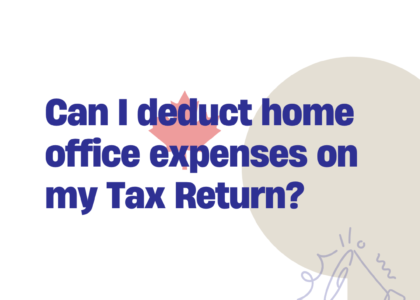how to maximize tax return canada? As tax season approaches, it’s essential to explore all possible ways to maximize your tax return. By taking advantage of tax credits and deductions, you can reduce your taxable income and increase your refund. Here are 20 strategies to help you get the most out of your tax return in 2024.
1. Claim Childcare Expenses
If you have children under 16, you can claim childcare expenses, including daycare, summer camps, boarding schools, and nannies. Typically, the spouse with the lower income claims these expenses.
2. Deduct Spousal & Child Support Payments
If you’re making spousal or child support payments, these may impact your tax bill. The tax treatment varies depending on the type of support.
3. Apply for Student Loan Interest Deduction
If you or your child is paying off a student loan, you can deduct the interest paid, provided the loan qualifies under specific federal or provincial programs. You can carry forward unused deductions for up to five years.
4. Maximize RRSP Contributions
Contribute as much as possible to your RRSP (Registered Retirement Savings Plan) before the deadline. This can reduce your taxable income, leading to a lower tax bill or a larger refund.
5. Claim Property Taxes and Rent Payments
If you’re a landlord, you can claim property taxes as a deduction. If you’re a tenant using your home for business, you may be able to deduct a portion of your rent.
6. Deduct Association & Union Dues
Membership fees for professional associations and unions are tax-deductible and can lower your taxable income.
7. Claim Employment Expenses
If your employer required you to cover certain work-related expenses, such as cell phone bills or office supplies, you can claim them. Educators can also claim eligible teaching supplies.
8. Deduct Tuition Expenses
Post-secondary tuition fees are deductible. Ensure you check the tax form provided by your educational institution to determine the eligible amount.
9. Claim Moving Expenses
If you moved at least 40 kilometers closer to work, business, or post-secondary education, you can claim moving expenses, including travel, storage, and temporary living costs.
10. Pool Medical & Charitable Expenses
Medical expenses and charitable donations can be partially deducted. Spouses may benefit from pooling contributions on one tax return for maximum savings.
11. Home Buyers’ Amount
First-time homebuyers can claim a $5,000 tax credit if they purchased a qualifying home.
12. GST/HST New Housing Rebate
If you’ve renovated or built a new home, you might qualify for the GST/HST New Housing Rebate. Landlords may also qualify under specific conditions.
13. Check for Provincial & Territorial Credits
Beyond federal credits, your province or territory may offer additional tax credits. Check your local government’s website for details.
14. Utilize RRSP & TFSA for Capital Gains
Interest earned in RRSPs and TFSAs is tax-free. While this doesn’t create a deduction, it helps grow your savings without increasing your tax liability.
15. Write Off Capital Losses
If you’ve sold investments at a loss, you can apply these losses against capital gains. Unused losses can be carried back three years or forward indefinitely.
16. Deduct Self-Employment Expenses
Self-employed individuals can deduct various business expenses, including advertising, travel, and office costs. Those who work from home can also deduct a portion of their home expenses.
17. Claim the Disability Tax Credit
If you or a dependent qualifies for the Disability Tax Credit, it can reduce the amount of tax owed. Additional benefits may also be available.
18. Home Office Expenses
If you worked from home during the pandemic, you may be eligible for home office expense deductions. Although the temporary flat rate method ended in 2023, other methods may still apply.
19. Canada Workers Benefit
Low-income workers can claim the Canada Workers Benefit, a refundable tax credit. Those with disabilities may be eligible for an additional supplement.
20. Canada Training Credit
If you’re over 26 and pursuing professional development, you can claim the Canada Training Credit, which offers $250 annually toward eligible tuition and course fees.






